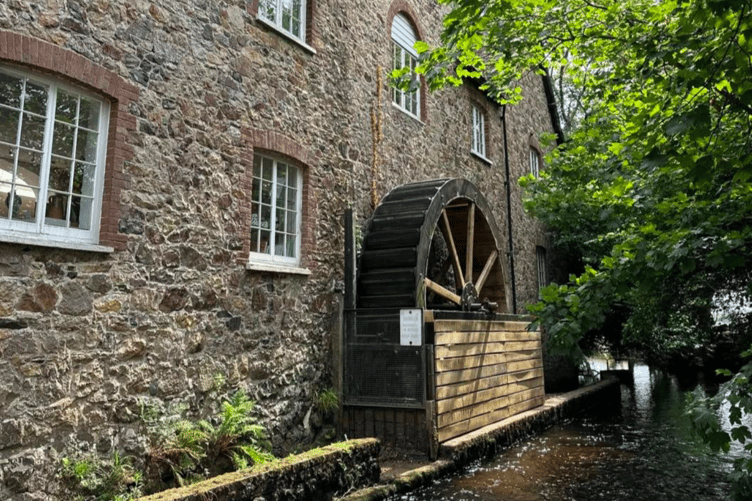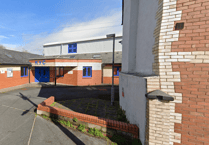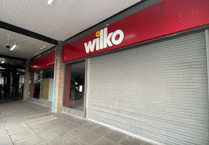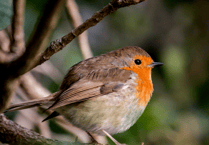THE historic Grade II Listed waterwheel at the Riverside Mill in Bovey Tracey, home to the acclaimed contemporary craft centre MAKE Southwest, has undergone major repairs and is turning again.
Located beside the bridge and River Bovey, the Riverside Mill is a local landmark in the town, greeting visitors arriving in the town from Dartmoor.
The repairs to the waterwheel, funded by the Tracey Almshouses and Samuel Croker’s Almshouse Charity, provide a tangible link to Bovey Tracey’s history, and enhance the natural beauty of the riverside.
The iconic waterwheel is a key part of Bovey Tracey’s industrial heritage, having provided the first domestic running water supply in the town. According to a 2021 report on the history of Riverside Mill, Bovey Tracey, by Dr Frances Billinge, the site was never a mill, but once a pair of cottages, which was purchased in 1845 by John Divett, the co-owner of the Bovey Tracey Pottery Company, as well as the adjacent property, Bridge House.
Divett rebuilt the cottages as stables with a water tower and waterwheel in 1854. The waterwheel was used to pump water from the River Bovey into the tower for domestic use at Bridge House as well as the stables, and remained operational until 1920.
According to Billinge, local residents relied on private wells in their house or yard, pot water taken from the river and streams, or the town pump, so would likely have regarded Divett’s domestic water supply as a remarkable innovation.
The restored wheel connects Bovey Tracey’s industrial heritage to its craft heritage. Divett’s innovative water system sits in the nexus of craft and engineering, and his domestic designs derive from a similar water system implemented at the Bovey Tracey Pottery Company, where several waterwheels were in operation, channelling water from Becky Falls in Dartmoor.
The turning wheel also links MAKE Southwest to the building’s history, which finds synergy with the charity’s celebration of heritage and contemporary innovation in craft, design, and making across the South West region and internationally.
The repairs to the waterwheel champion sustainable low-impact engineering, which works in harmony with natural resources, and enhances the beauty of its surroundings.
MAKE Southwest’s long-term ambition is to use the waterwheel as a source of renewable energy, promoting sustainable practices and teaching visitors about historical waterpower, with hands-on learning experiences for school groups and families.
The craft education charity has already set a precedent for promoting sustainable craft practices, through the launch of the Green Maker Initiative in 2021, which invites makers to sign a pledge to improve their environmental sustainability over time through a series of simple commitments that reduce their impact on the planet year on year.
In 2026, the organisation is putting on an exhibition entitled KINETIC, which will showcase a variety of kinetic works combining craft and engineering from makers across the UK. Visitors will have the opportunity to learn about craft and its applications for both art and industry, and consider the importance and relevance of craft skills in our society.
The team at MAKE Southwest would like to thank the Tracey Almshouses and Samuel Croker’s Almshouse Charity for their generous funding, as well as Vanessa Steer and Martin Brealey for their support.
MAKE Southwest hopes the restoration will foster connection and a sense of pride in the local community, and the turning waterwheel has already caused ripples of excitement among Bovey Tracey residents.





Comments
This article has no comments yet. Be the first to leave a comment.